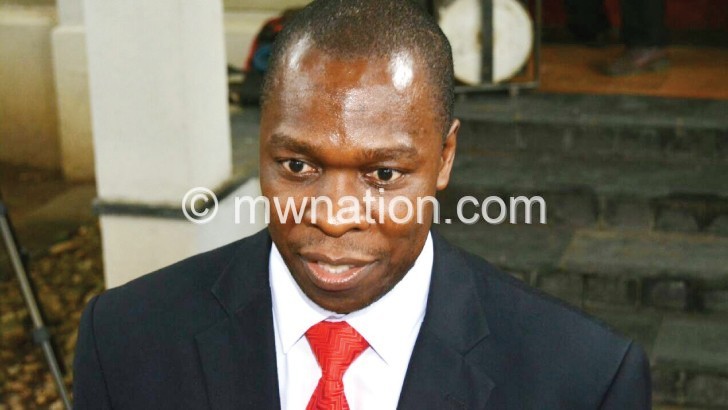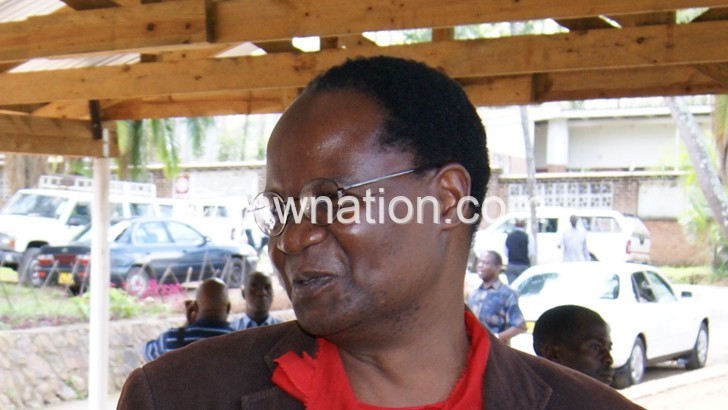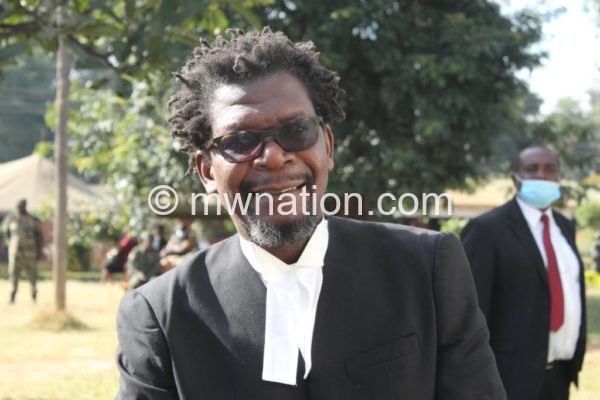Experts warn on new laws
Law experts have warned that any attempt by the new Tonse Alliance administration to formulate legislations or amend existing laws targeting people that committed crimes in the past regime would not pass the constitutionality base.
The legal experts have said if the idea is to criminalise something that was not criminal or to make criminal laws to apply on crimes committed in the past; it would be illegal and unacceptable.

President Chakwera, in his national address on July 25 2020, said his administration had resolved to forgo amnesty that could be offered to looters of public funds but would instead, in consultation with minister of Justice and Constitutional Affairs, initiate a process to come up with new legislations to help his government deal with politicians or public servants that plundered the public purse during the Democratic Progressive Party (DPP) administration.
Chakwera hinted he considered taking this route after their discovery that the fraud, corruption and theft committed during the DPP administration was unimaginable and worse than the infamous Cashgate, with a system rotten to the core.
But law expert Justin Dzonzi warned in an interview yesterday that coming up with new legislations or amending criminal laws to target a particular group of people that supposedly committed what were not offences in the past would be a process in futillity as such would easily be challenged.

“But we do have sufficient laws to achieve desires of the President even without coming up with new legislations. To amend the laws, in theory it is possible, but chances are high that it cannot pass constitutionality base.
“Retrospectivity will be one issue to make it illegal. That process, if indeed that’s the intention, is not necessary. We’ve Penal Code, Corrupt Practices Act and Financial Crimes Act, enough to adequately deal with all the issues at hand,” Dzonzi said.
Garton Kamchedzera, a professor of law at University of Malawi’s Chancellor College, said in an interview yesterday that it depends on what Chakwera’s administration wants to do with changes they want to make.
“If it’s to do with fine-tuning procedures to make a particular law efficient and effective, that’s fine. But if it’s creating offences where there was none, it will be a challenge,” Kamchedzera said.

He said any new law start applying from the date it has been enacted.
Kamchedzera said there can only be exceptions in other laws other than criminal where Parliament can expressly state that a particular law would apply retrospectively and proceed to have it backdated.
He said in criminal law, courts presume that an act of Parliament does not apply retrospectively unless Parliament expressly states so.
“When it comes to criminal law, the issues of rights come in. If something was not an offence, it means the person affected was not guided rightly and you cannot punish that person,” he said.
Kamchedzera said so, too, is the case of amending the law to bring stiffer punishment, explaining that such stiffer punishment would only start applying from the time an amendment is made, not retrospectively.
But Titus Mvalo, who is minister of Justice and Constitutional Affairs in the Tonse Alliance administration ushered into power through the court-sanctioned June 23 2020 fresh presidential election, said in an interview yesterday that what the President hinted on are issues that have processes that begin at Cabinet level.
“There’s nothing yet on my table, these are matters that have procedures. It’s difficult for me to comment on this now because there is nothing so far. When it comes, it will become known to the public thorough Parliament which transacts its businesses openly,” Mvalo said.
The Minister of Justice said no meeting has taken place yet on the issue of new legislation the President spoke about.
Mvalo said such issues that require the attention of the Cabinet remain confidential until at a time such issues are laid before the Parliament.
Attorney General (AG) Chikosa Silungwe, on the other hand, said in an interview on Wednesday that he was aware of the President’s intentions to have the new legislation but said a planned meeting between the President and other relevant officials was yet to take place.
Silungwe said he was not in a position to discuss more before that meeting takes place.
“Give us some time, I will be able to furnish you with more information after that meeting,” the AG said.
However, Chakwera’s spokesperson Sean Kampondeni said in a response to a questionnaire gaps in the current legislation are to do with stiffer punishments for looters and protections for whistleblowers.
“Other gaps have to do with the need for a legislative framework for the creation of special courts to deal with corruption cases and dispose of them expeditiously.
“Another gap has to do with legislation related to lifestyle audits and the seizure of inexplicable wealth owned by both public servants and their proxies behind whom they may attempt to hide their ill-gotten wealth,” Kampondeni said.
He further said there are legislative gaps related to holding financial institutions accountable for being complicit in the movement of illicit funds, including banks that fail to do their part in ensuring that their accounts are not conduits for harboring stolen taxes.
Chakwera’s spokesperson admitted laws do not apply retrospectively, but said the biggest problem in Malawi was that even existing laws have not been enforced at all, resulting in a culture of stealing and looting public funds with impunity.
“His Excellency Dr. Lazarus Chakwera has made it abundantly clear that such impunity will be countenanced no longer,” he said.
Chakwera in his address to the nation on July 25 warned people that stole public funds that they should avoid seeking public sympathy but return what they stole as the law is going to take its course on them.
In the address, the President referred to the recent Auditor’s General’s report in demonstrating that the culture of corruption has permeated every structure in government.
Chakwera said it would be up to the courts to exercise leniency on people who would not waste their time by “confessing” their sins and return what they stole.
“Other people think we choose who to arrest; that’s not our style. We’ll allow the responsible authorities to do their job. State agents would operate depending on what evidence they have, but we’ll not push them to do something,” Chakwera said.
The President said the plunder under the DPP administration was pervasive as about K1.3 trillion was lost, but asked Malawians to be calm as the Tonse Alliance administration drains the swamp.. n





